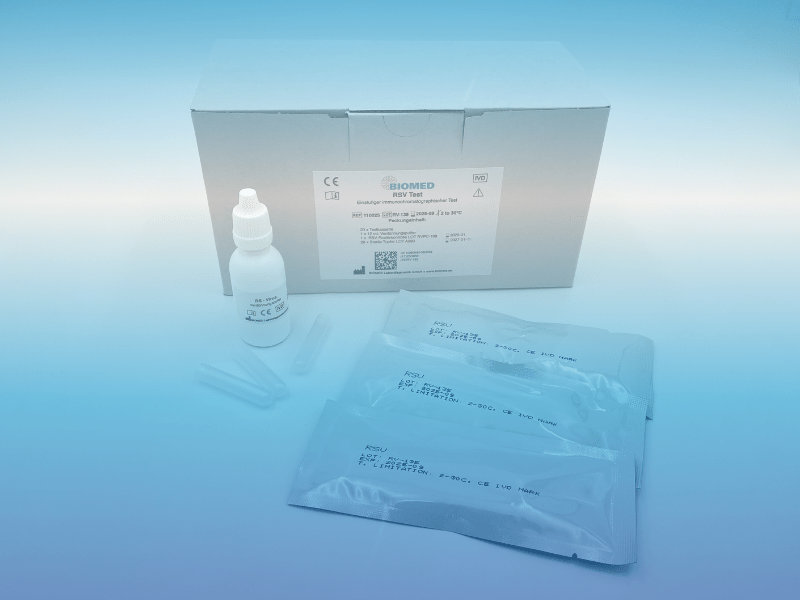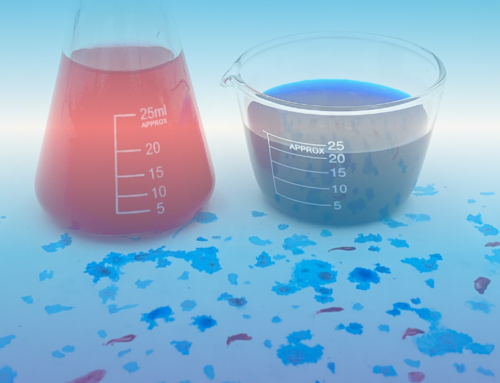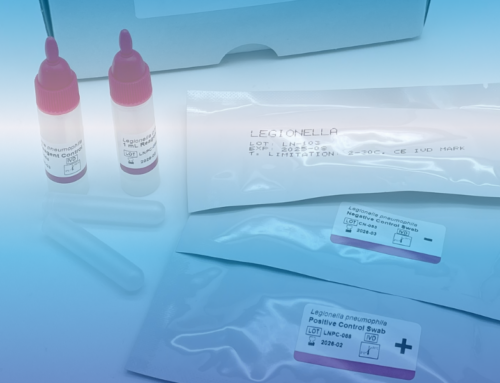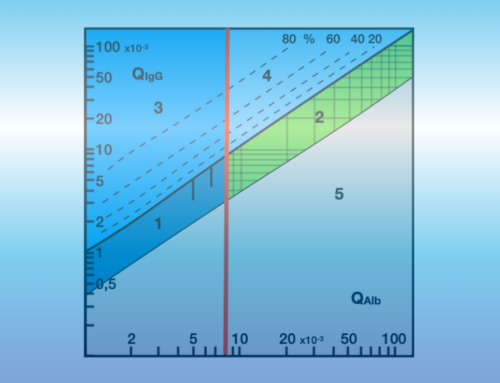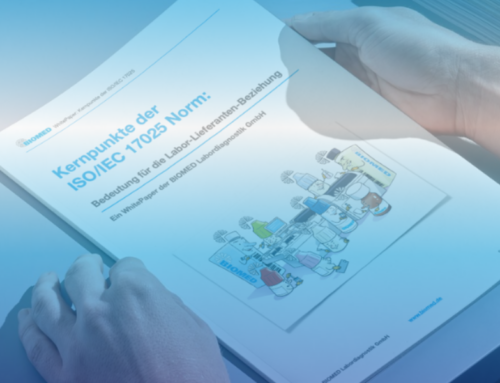RSV stands for “respiratory syncytial virus”, or RS virus for short. Infections with respiratory syncytial virus occur more frequently in the cold months from October to April. In order to enable timely diagnostics especially for risk groups, our BIOMED RSV-Rapid Test is available at the beginning of the cold season. It is a ready-to-use test kit for simple application in the nasopharynx. The result is generated within 10 minutes as a qualitative lateral flow assay with specific antibodies.
The pathogen is distributed worldwide and is transmitted by droplet infection from one infectious person to another or indirectly via contaminated hands, objects or surfaces. The incubation period is usually two to eight days.
In infants and young children up to the age of three, the RS virus is the most common cause of acute respiratory infections worldwide. In principle, anyone can become infected. Older children and adults usually develop only mild cold-like symptoms. Especially in infants in the first three months of life, an infection can be severe. Because infants’ airways are relatively narrow, the bronchioles and their lung tissue are particularly damaged. Bronchiolitis and pneumonia occur. To contain the spread of the RS virus and protect at-risk groups, early diagnosis by rapid RSV test is essential.
The Robert Koch Institute (RKI) reports that since late summer 2021, the number of hospital admissions for respiratory syncytial virus (RSV) infections among one- to four-year-olds has risen sharply – twice as many in September 2021 as in previous years. These children have not yet come into contact with certain pathogens because of daycare closures and other measures against the COVID-19 pandemic in Germany, he said.

